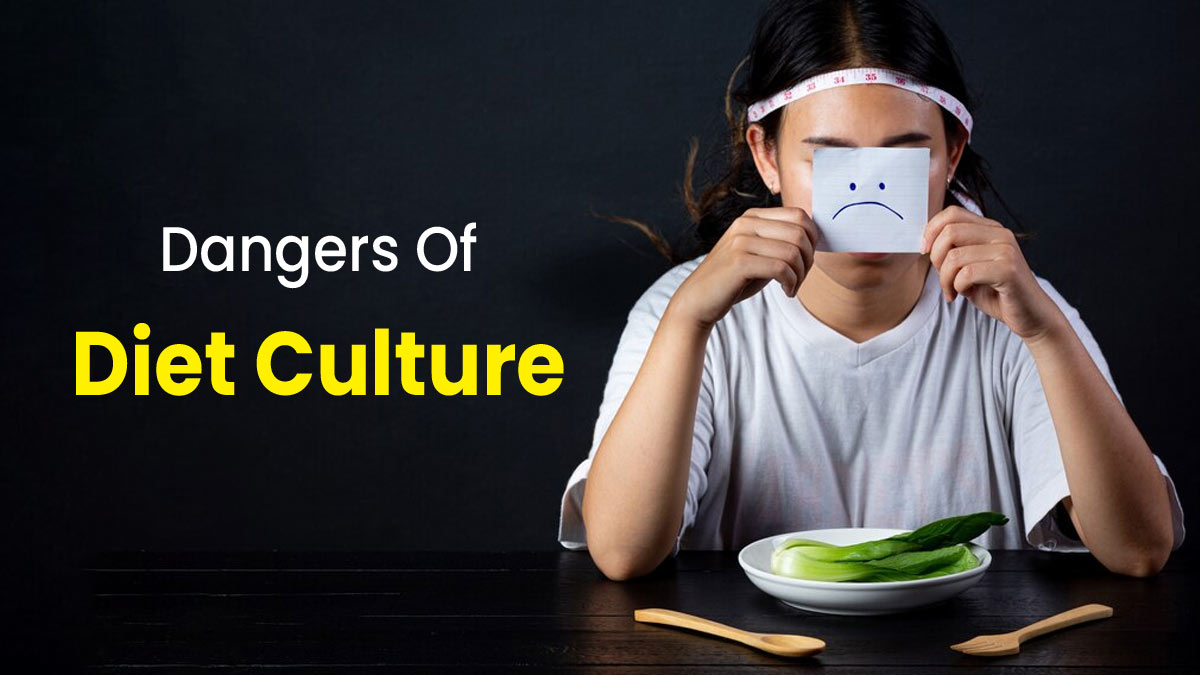
Do you restrict yourself from eating the moment someone tells you that you have gained weight? This diet culture, which has been inspired by social media influencers or brought on by the societal pressure of a ‘perfect body’ has become common in today’s time. Diet culture has many dangers that extend beyond merely pursuing well-being, often negatively impacting both physical and mental health as well. We spoke to our expert Dr Archana Batra, Nutritionist, Physiotherapist, and Certified Diabetes Educator, Gurgaon, who explained the impact of diet culture on your health.
Impact of Diet Culture
According to an analysis by Health Psychology Open, diet culture is the widespread belief or social norm that links health and thinness with weight loss.

Restrictive Eating Habits
One of the primary pitfalls of diet culture lies in its promotion of restrictive eating habits. “Fad diets, often endorsed by influencers and celebrities, advocate for extreme calorie reduction or the exclusion of entire food groups. Such practices can result in nutritional deficiencies, affecting vital bodily functions and compromising overall health”, highlighted Dr Batra.
Impact of Yo-Yo Dieting

The cycle of constant dieting can contribute to a phenomenon known as ‘yo-yo dieting’. Rapid weight loss followed by equally rapid weight gain can strain the body and lead to metabolic imbalances. This pattern not only hampers sustainable weight management but also increases the risk of developing chronic conditions, such as heart disease and diabetes.
According to BMC Sports Science, Medicine and Rehabilitation, clinical eating disorders can arise from excessive dieting, which may also be a sign of Disordered Eating (DE) behaviours.
Also Read: Vicious Cycle Of Yo-Yo Dieting: Expert Explains Its Health Implications And How To Break The Cycle
Psychological Impact Of Diet Culture

The psychological toll of diet culture is equally significant. Dr Batra added, “Constantly fixating on food, weight, and appearance can give rise to disordered eating patterns, such as binge eating or orthorexia – an unhealthy obsession with consuming only ‘pure’ and ‘clean’ foods.” These disorders not only jeopardise nutritional well-being but also take a toll on mental health, leading to anxiety, depression, and a negative self-image, as stated in Frontiers in Psychology.
According to Nutrition and Dietetics, body dissatisfaction and weight loss behaviours may rise when people are exposed to idealised pictures of food and fitness.
Also Read: Mastering GERD Management: Expert Lists Tips for Dietary and Lifestyle Changes
Message From The Expert
Dr Batra emphasised, “It’s crucial to recognise that bodies vary, and a one-size-fits-all approach to health is unrealistic. There should be an emphasis on the importance of adopting sustainable, balanced lifestyles that focus on nourishment rather than deprivation. Building healthy habits, such as regular exercise and mindful eating, fosters a positive relationship with food and promotes long-term well-being.”
To combat the negative impact of diet culture, education plays a pivotal role. By understanding the body’s nutritional needs and debunking common myths perpetuated by the diet industry, individuals can make informed choices that align with their unique health goals.
Bottomline
The dangers of diet culture extend far beyond the superficial pursuit of an idealised body. Embracing a holistic approach to health that prioritises balanced nutrition, regular exercise, and mental well-being is key to breaking free from the harmful cycle of restrictive diets and fostering a healthier, more sustainable lifestyle.
[Disclaimer: The information in this article is shared by an expert and is for informational purposes only, hence, we advise you to consult your expert if you have restrictive eating habits or symptoms of eating disorders.]







